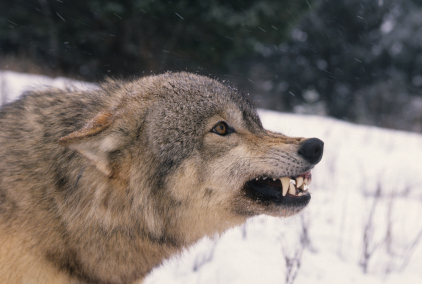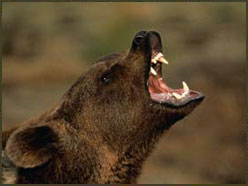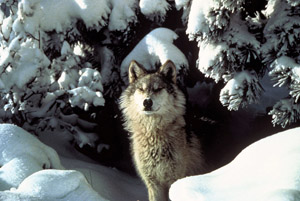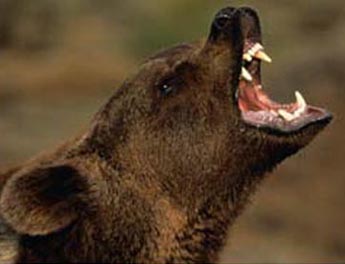The wolves that apparently killed schoolteacher Candice Berner on a lonely gravel road in rural Alaska last week were not rabid, a preliminary lab analysis has determined.
If the wolves are also found to be free of distemper, it would mean Berner’s death is just the second time in recorded North American history that a humanhas been killed by healthy wolves.
Two of the three wolves implicated in the attack and subsequent killing of 32-year-old Berner were shot by wildlife agents earlier this week, and the Anchorage Daily News reported yesterday that brain samples found no sign of rabies.
The finding is significant. The longstanding assumption about wolves is that while they are efficient predators of ungulates, they have a genetic fear of humans, and won’t attack people. A landmark study of recorded wolf attacks on humans by former Alaska Fish and Game biologist Mark McNay indicates that in nearly every incidence of aggressive wolves, the canines were either injured or diseased.
All that changed in 2005, when college student Kenton Carnegie was pulled down and killed by a pack of wolves near an airstrip in northern Saskatchewan.
And now it appears that Berner was killed by healthy wolves. Accounts from Chignik Lake, a rural outpost on the Alaska Peninsula some 450 miles southeast of Anchorage. According to media accounts, petite, athletic (she reportedly stood 4-feet, 11-inches) Berner went for a jog along a gravel road outside town shortly after school ended for the day. About 6:30 that evening, her body was discovered just off the road by snowmobilers returning to the village.
“There was a blood spot on the road,” recounted one of the snowmobilers. “And there was drag marks going down a little hill.”
Along with the drag marks, blood in the snow indicated that Berner had put up some resistance, but was taken down fairly quickly. Her mangled body was found near the spot where she was taken down, and numerous wolf tracks were found around her remains.
At first investigators suspected that Berner might have been attacked by a brown bear and that wolves preyed on her remains. But an autopsy concluded that the cause of death was attack by canines. A trio of wolves also stayed near the site of the incident, and until Berner’s body was removed, appeared intent on returning to the carcass.
Poor weather complicated efforts to kill the wolves, but earlier this week wildlife agents were able to get in the air and shot two of the wolves implicated in Berner’s death.







